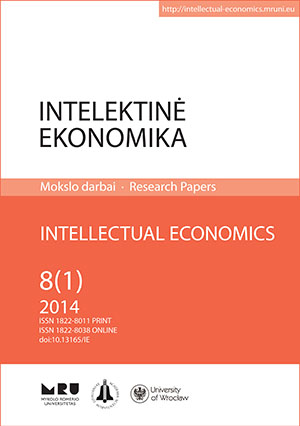Quality of Working Life Concept and Empirical Indicators
Quality of Working Life Concept and Empirical Indicators
Author(s): Algirdas MonkevičiusSubject(s): Economy
Published by: Mykolas Romeris University
Keywords: quality of working life; QWL; happiness; welfare; subjective well-being; job satisfaction; productivity; working environment; growth; self-realisation; values; GDP
Summary/Abstract: In this paper we examine the concept of quality of working life (QWL), focusing on the systematic connection with the employee’s personality and happiness. The evolution of the approaches to QWL is analysed in the context of policy and management, showing the links between research findings and government reform ideas. The paper presents evidence through research perspectives on positive psychology and health sciences that productivity and employee happiness have a positive mutual interface. The author’s position is that happiness is a key element in the concept of QWL. QWL is a level of well-being at work that depends on the relation between the whole of the factual working conditions and personality. QWL shows the state of subjective satisfaction – happiness at work. In this regard, we see four main dimensions of QWL – quality of working environment, job satisfaction, personality and personal happiness. Six of the most important work environment factors (pay, safety, balance of the working and non-working life, relationships, growth and self-realisation) have been set as the indicators for empirical studies.
Journal: Intelektinė ekonomika
- Issue Year: 8/2014
- Issue No: 1
- Page Range: 8-24
- Page Count: 17
- Language: English

